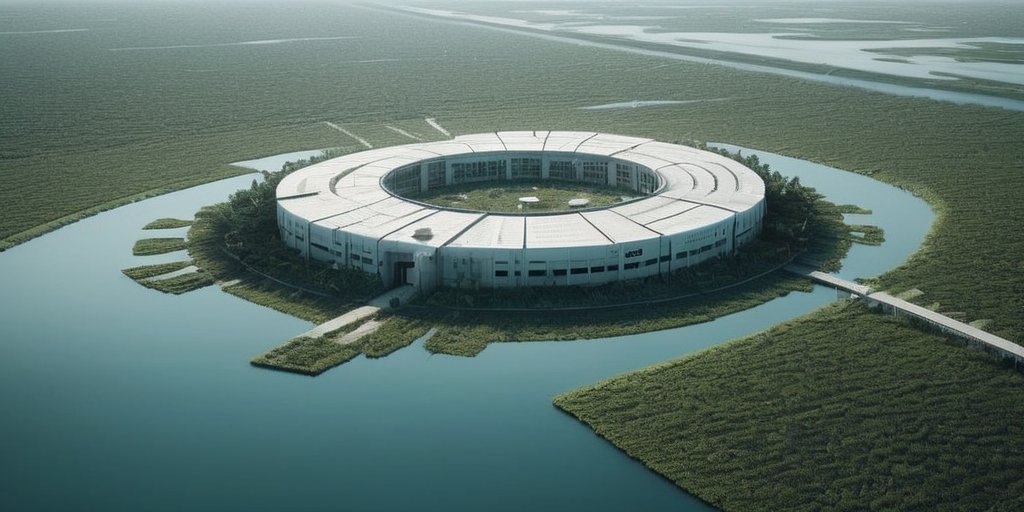In a striking move linked to President Donald Trump’s controversial immigration agenda, a virtually abandoned airport in Florida’s Everglades is being transformed into a new migrant detention facility, affectionately dubbed “Alligator Alcatraz.” This facility is designed to accommodate around 1,000 detainees and is expected to commence operations by mid-summer. This decision follows a 2023 executive order by Republican Governor Ron DeSantis invoking emergency powers to tackle the influx of undocumented migrants.
Notably situated 43 miles from central Miami, the site will utilize the Dade-Collier Training and Transition Airport, a location mainly comprising pilot training runways surrounded by extensive wetlands. The move underscores the state’s commitment to Trump’s deportation agenda, aiming to create a stronger deterrent against undocumented immigration. Advocates for the facility argue that the remote location – surrounded by the hazards of the swamp, including alligators and pythons – minimizes escape risks.
“You don’t need to invest that much in the perimeter. If people get out, there’s not much to wait for them other than alligators and pythons,” stated Florida’s Attorney General James Uthmeier in a recent social media video. As the Trump administration pushes for what has been described as the largest mass deportation effort in U.S. history, figures from Immigration and Customs Enforcement (ICE) indicate that there are currently 59,000 detainees nationwide, significantly exceeding capacity.
The ‘Alligator Alcatraz’ initiative, however, has raised significant environmental and human rights concerns. Activists, including Betty Osceola of the Miccosukee Native American community, highlight fears regarding the ecological ramifications that this new facility may pose to the Everglades, a UNESCO World Heritage Site. Furthermore, organizations such as the ACLU contest that detention centers, regardless of their placement, have historically resulted in systemic mistreatment and neglect. They argue that this facility represents a shift toward punitive measures rather than humanitarian responses to immigration issues.
Florida’s Homeland Security Secretary Kristi Noem touted the project as a ‘cost-effective’ strategy to expedite deportation processes, indicating that federal funds would support the construction and operationalization of this facility. Local leaders, including Miami-Dade’s Democratic Mayor Daniella Levine Cava, have expressed concerns about funding and potential environmental impacts, calling for greater transparency from state authorities.
As the Trump administration continues to reshape immigration policy, Florida’s newly branded ‘Alligator Alcatraz’ stands as a controversial emblem of the ongoing debate over human rights, environmental stewardship, and the ethics of mass deportation.
